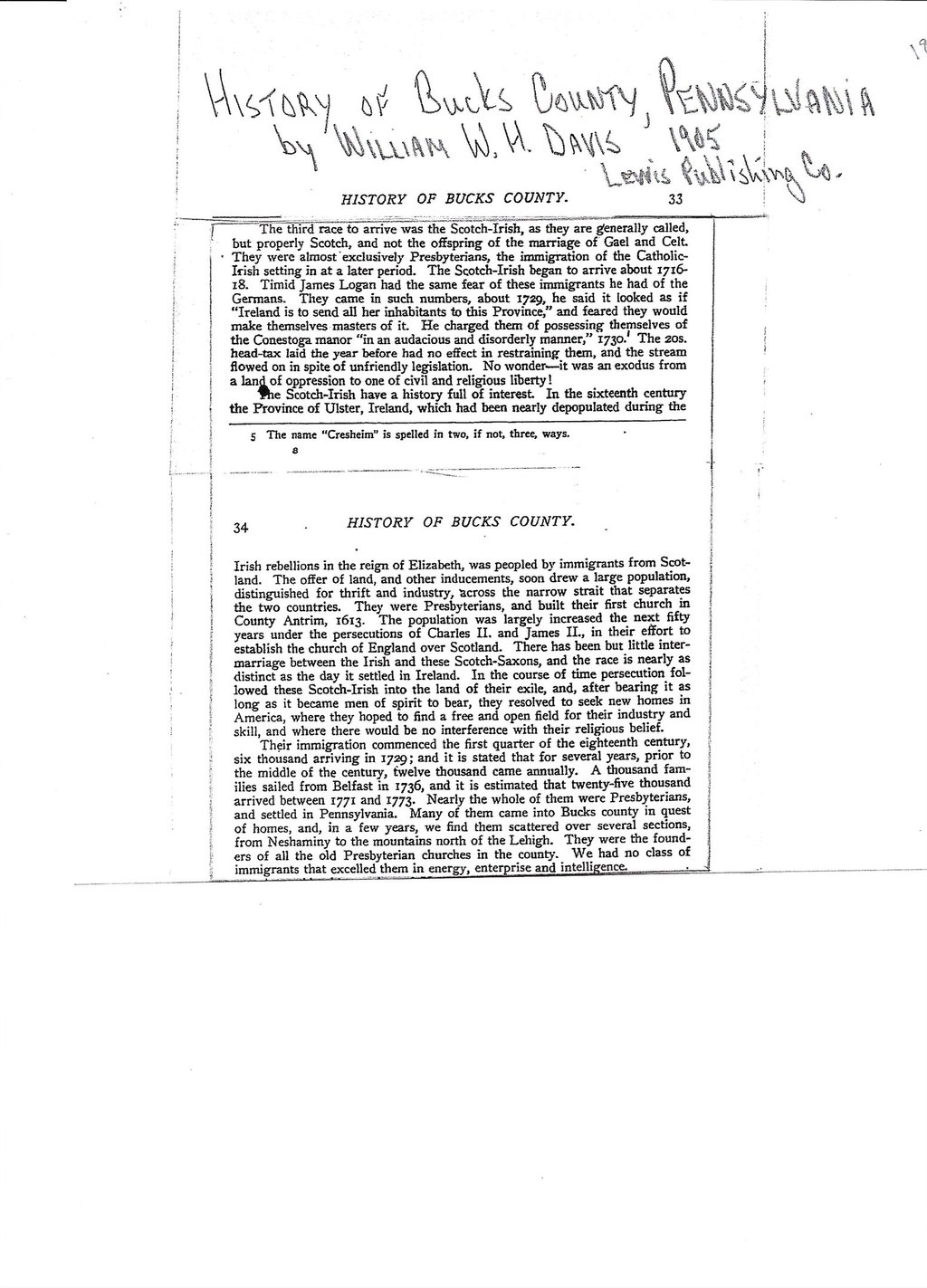Scots, Scots-Irish, Scotch-Irish, Ulster-Scots
What’s in a Name?
The Scots-Irish, Scotch-Irish, and Ulster-Scots are variant names for the same people. All three relate to people who left Scotland, mostly in the seventeen (1600s) and eighteenth (1700s) centuries; settled via various, successive waves of the Ulster Plantation (Northern Ireland)—the northern-most province of Ireland; they stayed one, two, or three generations, and then moved to North America. That is the story of the Wilson-Thompson Families. The Scots however came to America directly from Scotland. They differ from others in that they did not spend any time in Ulster (Northern Ireland).
From the first decades of the eighteenth century, the Ulster-Scots emigrated to the Americas in ever increasing numbers. The migrant flow became stronger as settlers from N/Ireland took advantage of the opportunities in the burgeoning colonies. Having moved once already (from Scotland to N/I) and having broken the link with their ancestral home, it was quite practical to move again to where a better future beckoned. These early settlers established roots in the Philadelphia area, later many moved into western Pennsylvania, and south into the Shenandoah Valley, into Virginia, and into the Carolinas.
Although the terms, historically, have been used interchangeably in the Americas, the most common term is Scots-Irish. Linguists recommend against the term Scotch-Irish as `Scotch’ is a whisky not a group of people. The term Ulster- Scots was more commonly used during our country’s Colonial Period. Regardless of the term used to describe, Americans of Scottish descent are fiercely proud of their heritage and title.




Old Man of Hoy, Scotland
Cliffs of Mohr, Ireland


But What Were They Like? Here's a Bit More
